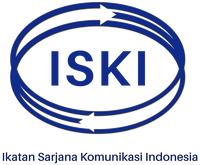PEMBENTUKAN CITRA PERUSAHAAN MELALUI EKUITAS MEREK ( STUDI KASUS PADA MAJALAH KABARE )
Abstract
It was originally presented in Yogyakarta as a community magazine for The Alumni with the contents about the details of Yogyakarta. The formulation of the research is how brand equity improves the brand image of KABARE Magazine. The type of the research is qualitative with KABARE Magazine as the object of the research, located in Jl. Pacar 67A, Baciro, Yogyakarta. Primary data source are obtained from the Executive Director of PT. KABARE Jogja Media Pariwara, while secondary data are gathered through mass media, internet, and so on. In order to conduct validity test, the researcher uses source triangulation and data analysis technique of combination analysis model. The result of this research is about image which is the evaluation from consumers regarding a product. Creating an image requires high persistence and patience. Image is resulted from a score of result obtained by a company for its product, either positive or negative. The image of KABARE Magazine as a dynamic magazine by levering culture, the social life dynamics in Yogyakarta has clung to the heart of its consumers. Brand equity produced by KABARE essentially is a magazine for upper middle class segmentation and is still bound to their community. KABARE Magazine creates image as an exclusive lifestyle magazine, highly cultural and has distinctive local content. The brand of KABARE already has a spot in the hearts of its customers. The strong bonding established by KABARE with its customers has built “a real belonging” to the brand of this magazine. Removing the word Jogja to the logo of KABARE has prevented public opinion concerning an excessive cultural cult of a region.
Keywords
Full Text:
PDF (Bahasa Indonesia)References
Amstrong, Gary dan Philip Kotler, 2003, Dasar-Dasar Pemasaran Edisi Kesembilan Jiliid 1, PT. Indeks Kelompok Gramedia, Jakarta.
Effendy, O. U., 1993, Human Relations dan PR, Bandung, Mandar Maju.
Gobe, Marc, 2001, Citizen Brand, Jakarta, Erlangga.
Kasali, Rhenald, 1995, Manajemen Periklanan Konsep dan Aplikasinya di Indonesia, PT. Pustaka Utama Grafiti, Jakarta.
Kotler, Philip, 1994, Manajemen Pemasaran Analisis, Perencanaan dan Pengendalian Jilid 1, Erlangga, Jakarta.
Kotler, Philip, 1988, Manajemen Pemasaran Analisis, Perencanaan, Implementasi dan Pengendalian Jilid 2, Erlangga, Jakarta.
Lee, Wuyao Hsu dan Harold P. Jackson, 2004, Prinsip-Prinsip Periklanan dalam Perspektif Global, Prenada Media, Jakarta.
Meleong, J. Lexy, 2005, Metodologi Penelitian Kualitatif, Bandung, Rosdakarya.
Moore, H Frazier, 2004, HUMAS Membangun Citra dengan Komunikasi, PT. Remaja Rosdakarya, Bandung.
Mulyana, Dedy, 2002, Metode Penelitian Kualitatif, Bandung, Rosdakarya.
Nicolino, Patricia F., 2004, The Complete Ide- al’s Guide BRAND MANAGEMENT, Jakarta, Prenada Media.
Rangkuti, Freddy, 2004, The Power Of Brands. PT. Gramedia Pustaka Utama, Jakarta.
Ruslan, Rosady, 2005, Manajemen Public Relations & Media Komunikasi, Jakarta, Raja Grafindo Persada.
Ruslan, Rosady, 2003, Metode Penelitian Public Relations dan Komunikasi, Jakarta, Raja Grafindo Persada.
Shimp, Terence A., 2000, Jilid 1 PERIKLANAN PROMOSI Aspek Tambahan Komunikasi Pemasaran Terpadu, Jakarta, Erlangga.
Sutopo, H. B., 2002, Metodologi Penelitian Kualitatif, Surakarta, Sebelas Maret University Press.
DOI: https://doi.org/10.31315/jik.v7i2.15
Refbacks
- There are currently no refbacks.
Copyright (c)
Jurnal Ilmu Komunikasi indexed by:
Copyright of Jurnal Ilmu Komunikasi ISSN 1693-3028 (print), ISSN 2407-8220 (online)
Alamat:
Kampus II UPN "Veteran" Yogyakarta, Jl. Babarsari 2, Tambakbayan, Yogyakarta 55281
Phone: (0274)485268
Fax: (0274)487147
Email: [email protected]










